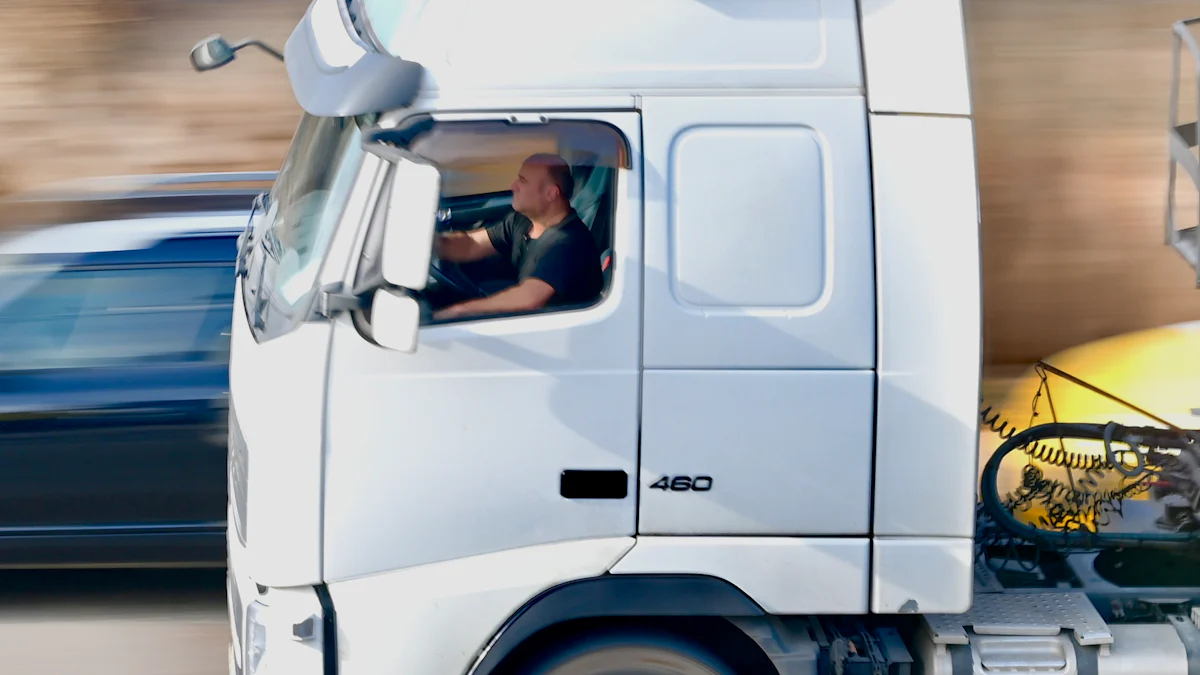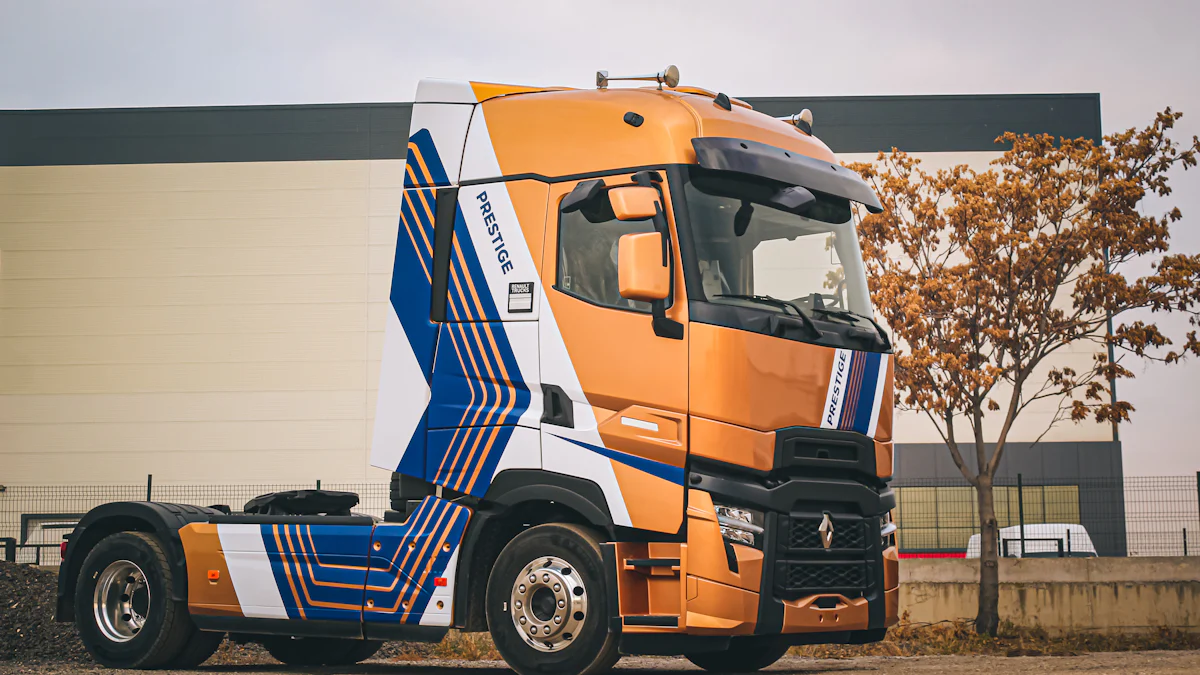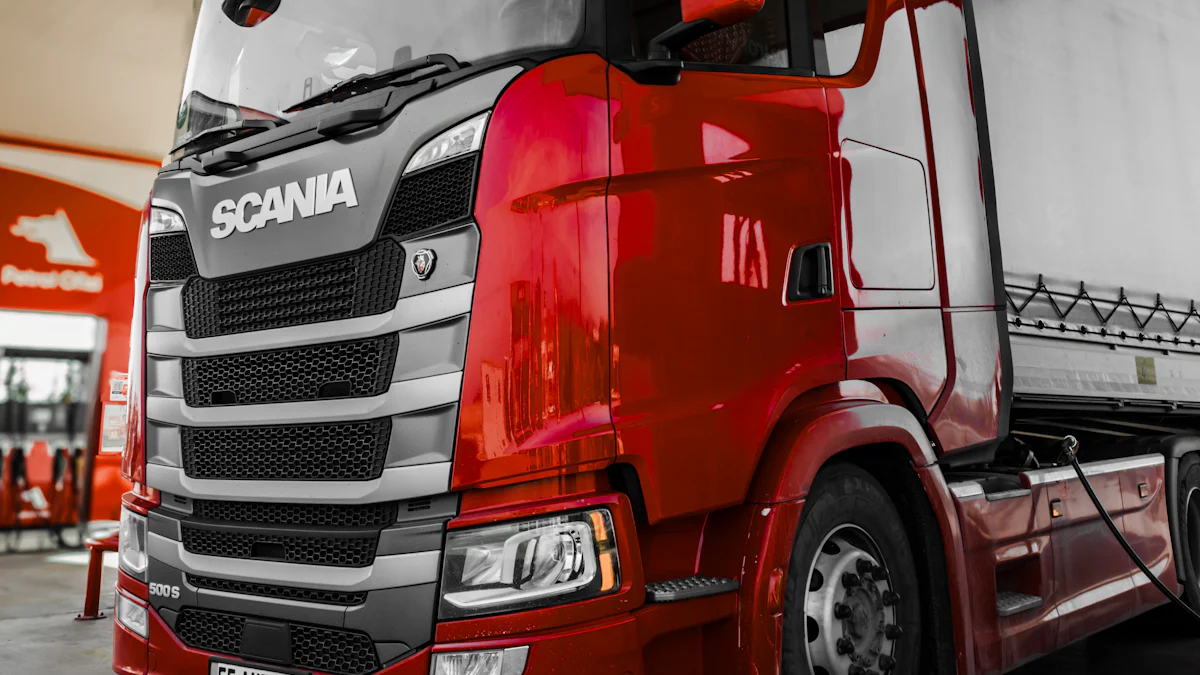
European trucks play a vital role in shaping the global trucking industry. You can see their influence in their innovative designs and commitment to sustainability. These trucks also reflect the unique identity of their regions. Each European truck combines advanced technology with practical features, making them a symbol of progress and efficiency worldwide.
The Legacy of European Truck Brands

Historical Milestones in European Truck Manufacturing
European truck manufacturing has a rich history that dates back to the early 20th century. You can trace its roots to the industrial boom in Europe, where companies began designing vehicles to meet the growing demand for efficient transportation. In the 1920s and 1930s, manufacturers introduced diesel engines, which revolutionized the trucking industry. These engines offered better fuel efficiency and durability compared to gasoline engines.
During the post-war period, European truck makers focused on rebuilding economies. They developed trucks that could handle heavy loads and long distances. By the 1970s, advancements in aerodynamics and safety features set new standards for the global market. You can see how these milestones shaped the modern trucking industry and established Europe as a leader in truck innovation.
Global Reputation for Quality and Innovation
European trucks are known worldwide for their exceptional quality and cutting-edge technology. Manufacturers prioritize durability, ensuring that their trucks perform reliably under tough conditions. You’ll notice that many European brands invest heavily in research and development. This focus has led to innovations like advanced driver-assistance systems and fuel-efficient engines.
The emphasis on sustainability also sets European trucks apart. Companies design vehicles to meet strict environmental regulations, reducing emissions and promoting cleaner transportation. This commitment to quality and innovation has earned European trucks a reputation as some of the best in the world.
Iconic European Truck Brands and Their Influence
Several iconic brands have defined the European truck industry. Companies like Volvo, Scania, and Mercedes-Benz have become household names. Each brand brings unique strengths to the table. For example, Volvo is celebrated for its safety features, while Scania is known for its powerful engines. Mercedes-Benz combines luxury with practicality, offering trucks that excel in both performance and comfort.
These brands don’t just dominate the European market. They influence global trucking trends, setting benchmarks for design, efficiency, and sustainability. When you think of a European truck, you’re likely imagining one of these iconic names, which continue to shape the future of the industry.
Cultural Elements of European Truck Design

Practicality and Functionality in European Truck Design
European truck design prioritizes practicality and functionality. You’ll notice that these trucks often feature compact cabins and streamlined shapes. This design helps them navigate narrow roads and urban areas with ease. Engineers focus on creating vehicles that maximize cargo space while maintaining fuel efficiency. For example, many trucks use modular designs, allowing you to customize the vehicle for specific tasks.
Safety also plays a key role in their functionality. Trucks often include advanced braking systems, ergonomic controls, and excellent visibility. These features ensure that drivers can operate the vehicle comfortably and safely, even during long hauls. By focusing on practicality, European trucks meet the diverse needs of industries across the continent.
Sustainability and Environmental Standards
Sustainability is a cornerstone of European truck design. Manufacturers work hard to meet strict environmental regulations. You’ll find that many trucks use fuel-efficient engines and alternative energy sources like electric or hybrid systems. These innovations reduce emissions and promote cleaner transportation.
Recycling also plays a part in sustainability. Many manufacturers design trucks with recyclable materials, reducing waste at the end of the vehicle’s life cycle. By prioritizing environmental standards, European trucks set an example for the global trucking industry.
Personalization and Truck Festivals in Europe
Personalization is a unique aspect of European truck culture. Many drivers customize their trucks with vibrant paint jobs, LED lights, and interior upgrades. These modifications reflect personal style and pride in their vehicles.
Truck festivals celebrate this culture. Events like the Truckstar Festival in the Netherlands showcase customized trucks and bring together enthusiasts. You can experience the passion and creativity of the trucking community at these gatherings. Personalization and festivals highlight the cultural connection between drivers and their trucks.
Comparing European Truck Culture to Other Regions
European vs. American Truck Design and Usage
You’ll notice significant differences between European and American truck designs. European trucks often feature cab-over-engine designs. This compact structure allows better maneuverability on narrow roads and in urban areas. In contrast, American trucks typically have long-nose designs, prioritizing comfort and space for long-haul journeys.
Usage also varies. European trucks frequently operate on shorter routes due to the continent’s dense infrastructure. Drivers often make deliveries in cities or across nearby countries. American trucks, however, cover vast distances across states. This difference influences fuel efficiency, with European trucks focusing on smaller, efficient engines, while American trucks emphasize power and endurance.
Contrasts with Japanese and Chinese Trucking Practices
Japanese and Chinese trucking practices differ from European ones in several ways. Japanese trucks emphasize compactness and precision. You’ll find that they are designed for urban environments and smaller cargo loads. Chinese trucks, on the other hand, focus on affordability and mass production. They cater to the growing demand for transportation in a rapidly industrializing economy.
European trucks stand out for their balance of quality, innovation, and sustainability. While Japanese trucks excel in reliability and Chinese trucks in cost-effectiveness, European trucks lead in environmental standards and advanced technology.
Regional Preferences and Their Impact on Truck Culture
Regional preferences shape truck culture worldwide. In Europe, you’ll see a focus on sustainability and efficiency. This reflects the region’s strict environmental regulations and compact geography. In the United States, trucks symbolize freedom and ruggedness, influencing their larger designs and powerful engines. In Asia, practicality and affordability dominate, reflecting the needs of growing economies.
These preferences highlight how trucks adapt to cultural and economic demands. European trucks, with their innovative designs and eco-friendly features, continue to set global benchmarks.
The Role of European Trucks in Modern Industries
Supporting Logistics and Supply Chains
European trucks play a critical role in keeping logistics and supply chains running smoothly. You’ll see them transporting goods across cities, countries, and even continents. Their efficient designs allow them to carry large loads while consuming less fuel. This makes them ideal for industries that rely on timely deliveries.
Many companies depend on these trucks to meet customer demands. For example, grocery stores need fresh produce delivered daily. Factories require raw materials to keep production lines moving. European trucks ensure these needs are met with precision and reliability. Their advanced technology, like GPS tracking and automated systems, helps you monitor shipments and reduce delays.
Setting Global Standards for Safety and Innovation
Safety and innovation define European trucks. Manufacturers prioritize driver and cargo safety by including features like collision avoidance systems and lane-keeping assistance. These technologies reduce accidents and protect lives.
You’ll also notice how these trucks lead in innovation. They often introduce cutting-edge features before other regions adopt them. For instance, many European trucks now use semi-autonomous driving systems. These advancements not only improve efficiency but also set benchmarks for the global trucking industry.
The Future of European Trucks in a Sustainable World
The future of European trucks looks promising as they embrace sustainability. You’ll find manufacturers investing in electric and hydrogen-powered models. These trucks aim to reduce carbon emissions and combat climate change.
Recycling and eco-friendly materials also play a part in their future. Many companies design trucks that can be dismantled and reused at the end of their lifecycle. This reduces waste and promotes a circular economy. As industries move toward greener practices, European trucks will continue leading the way in sustainable transportation.
European truck culture stands out for its innovation, sustainability, and regional identity.
- Defining Traits: You’ll notice their focus on efficiency, safety, and eco-friendly designs.
- Global Impact: These trucks set benchmarks for technology and environmental standards.
European trucks continue to inspire the industry, leaving a legacy of progress and excellence.
Their influence shapes the future of transportation worldwide.
Post time: Jan-15-2025





